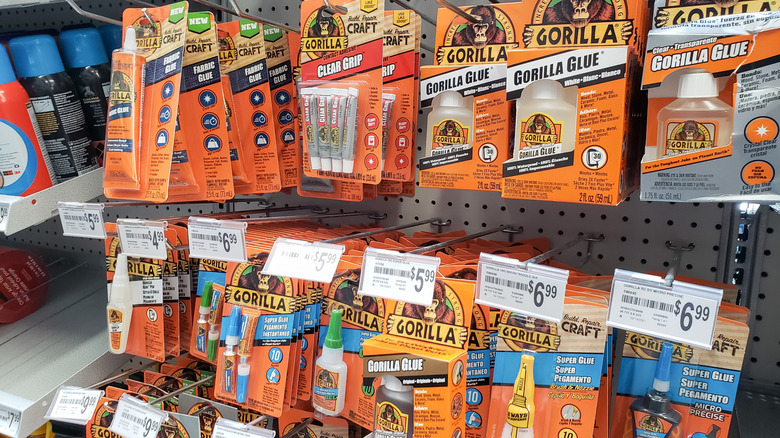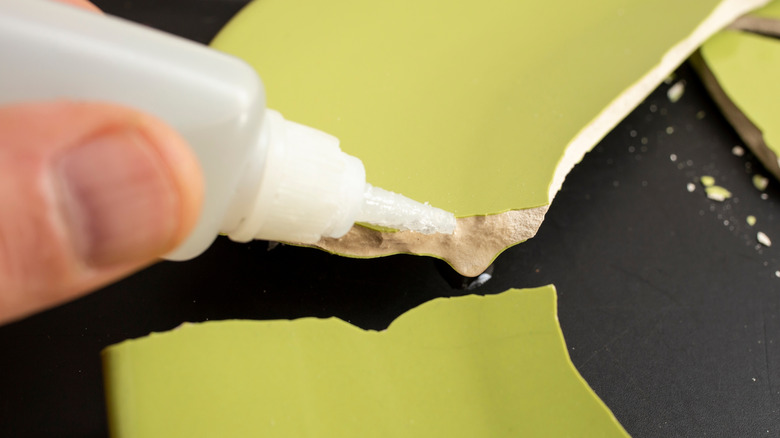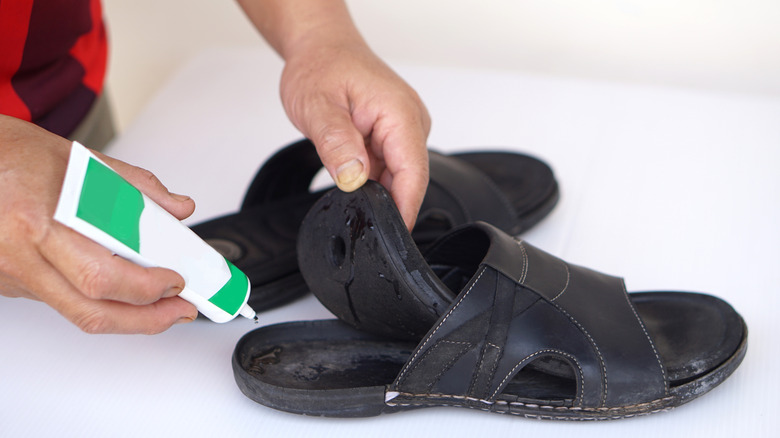Gorilla Glue Vs. Super Glue: Which Is Best For Your Home DIY Projects?
We may receive a commission on purchases made from links.
When it comes to home DIY projects, choosing the right adhesive is a key factor. Two of the most popular options are Gorilla Glue and Super Glue, both of which are strong and versatile. Even though you can get both from the same company, the glues have some significant differences in terms of application, bonding power, and ideal uses. So, how do you choose the best one? Both Gorilla Glue and Super Glue have their advantages, but neither one is perfect for every situation. The key is to match the glue to the material and the requirements of your project.
Gorilla Glue, particularly the original version, is a polyurethane adhesive that requires moisture to activate. This means that when using it, you need to slightly dampen one of the surfaces you're bonding if you want good results. The glue expands as it cures, filling in gaps and creating a strong, permanent bond. It's ideal for heavy-duty materials like wood, metal, ceramic, stone, and some plastics. Since it expands, Gorilla Glue is also a good option for handling surfaces with minor imperfections.
By contrast, Super Glue (or cyanoacrylate glue) is an instant-bonding adhesive that works quickly without the need for moisture. It forms a secure bond almost immediately after application and is a strong type of glue that packs a punch when bonding plastic, rubber, glass, or ceramic. It dries fast, which makes it perfect for quick repairs or projects that require more precision, but it does not fill gaps as well as Gorilla Glue, and it can be brittle once dried. Because of this, it's not suitable for all materials or applications.
Choosing the right glue for your project
There are a few things to consider when figuring out which glue is the best suited to your home DIY project. First, if you're working with heavier materials or projects that require a long-lasting bond, such as assembling furniture, fixing a broken outdoor pot, or repairing a wooden chair, Gorilla Glue is probably the better choice. Its expanding formula makes sure that it bonds well, even on uneven surfaces or porous materials, and it is strong enough to withstand heavy loads. Keep in mind, however, that the drying process will take longer, often requiring 24 hours to completely cure. It can also be messy if not applied carefully.
Super Glue, on the other hand, is great for precision work, quick fixes, and small repairs. It's the go-to glue for when you need to reattach a small piece of plastic to a toy, glue a broken vase, or fix a cracked picture frame. Since it bonds almost instantly, you don't have to wait long before moving on with your project. Plus, you can speed up Super Glue's drying time with a handy kitchen ingredient: baking soda. Super Glue also tends to dry clear, which is useful for projects where you don't want the adhesive to be visible. However, because it bonds so quickly, it can be more difficult to reposition the pieces once they've been joined, and the bond may not be as strong for larger or load-bearing projects.
When not to use each type of glue
Although both Gorilla Glue and Super Glue are functional adhesives, they have their limitations. There are some mistakes that everyone makes when using Gorilla Glue around the house. For starters, Gorilla Glue isn't suitable for all plastics. While it works well on many materials, certain plastics like polyethylene or polypropylene can be resistant to both Gorilla Glue's and Super Glue's bonding power. In this situation, you should instead use a plastic-specific glue like the Loctite Super Glue Plastics Bonding System with Activator.
Both glues also come with the potential for user error. While Gorilla Glue's expansion property is an advantage in some cases, it can also lead to non-uniformity. It's important to wipe away any excess glue before it dries to avoid ruining your project. Super Glue, meanwhile, can cause issues with skin contact, as it bonds quickly to skin and can be difficult to remove. It also doesn't perform well in extreme heat or moisture, so it may not be the best choice for outdoor or high-temperature applications.


